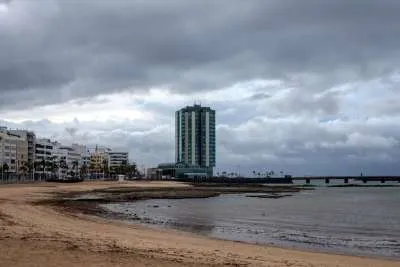Will the smoking ban on terraces reduce the tourism appeal of the Canary Islands?
- 28-07-2024
- National
- Canarian Weekly
- Photo Credit: Europa Press
The Federation of Hospitality and Tourism Entrepreneurs of Las Palmas (FEHT) has raised concerns that the proposed smoking ban on all terraces might negatively impact the tourism sector in the Canary Islands. While supporting restrictions on tobacco use, FEHT urges the Ministry of Health to carefully evaluate the economic repercussions of such a ban.
The Ministry of Health has launched a new proposal to amend Law 28/2005, which regulates tobacco use and advertising, and FEHT warns that prohibiting smoking on terraces could make the Canary Islands less appealing as a tourist destination.
FEHT President, José María Mañaricua, has called on the Ministry to reconsider the measures, citing the need for scientific evidence and an economic impact assessment to guide the decision.
FEHT and other tourism associations agree on the importance of regulating tobacco products, particularly to protect minors, young people, and non-smokers. However, they argue that the new regulatory process should include a thorough economic impact analysis. They also criticise the public consultation for lacking transparency and sufficient detail to ensure meaningful participation from affected sectors.
Economic Impact on Tourism
Mañaricua emphasised the significance of the tourism industry to the Canary Islands, which accounts for over 35% of the regional GDP and employs about 40% of the population.
He expressed concern that the smoking ban could deter tourists, impacting both the hospitality sector and the local tobacco industry. According to the FEHT's analysis with local businesses, the ban could harm the hospitality industry by restricting smoking or vaping in outdoor areas like bar and restaurant terraces, pools, and leisure areas.
Competitive Disadvantage
FEHT argues that implementing this measure without consensus would reduce Spain's tourism competitiveness compared to countries like Portugal, Italy, and Greece, which do not have such restrictions. The ban could confuse tourists, particularly from major markets like the UK and Sweden, where such measures are uncommon. As the Canary Islands offer year-round outdoor leisure activities, the ban could make the destination less attractive.
Equitable Application of Regulations
There is also concern about the uniform application of the new measures across all tobacco products. The trend towards equal regulation of combustible and non-combustible products, despite evidence showing lower toxicity of the latter, could further reduce tourism competitiveness.
Mañaricua pointed out that outdoor spaces already ensure coexistence and respect for non-smokers. The new measures would necessitate reevaluating how to accommodate smoking guests in hotels, potentially driving them to other destinations.
Other articles that may interest you...
Trending
Most Read Articles
Featured Videos
TributoFest: Michael Buble promo 14.02.2026
- 30-01-2026
TEAs 2025 Highlights
- 17-11-2025



























































